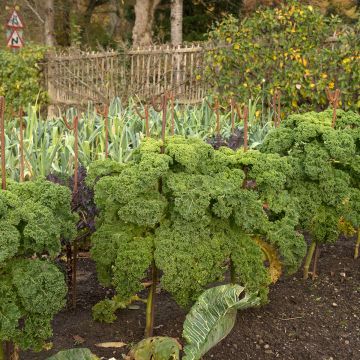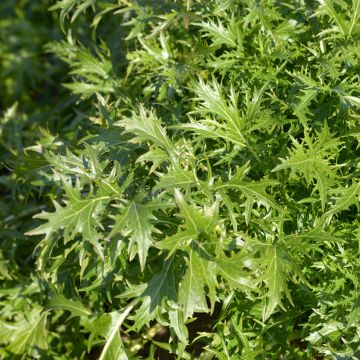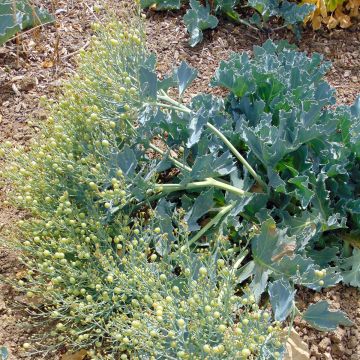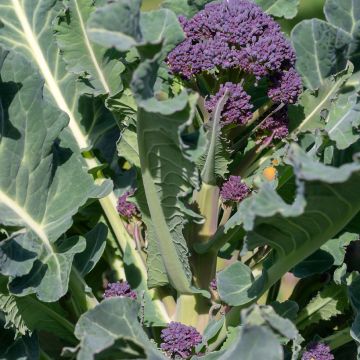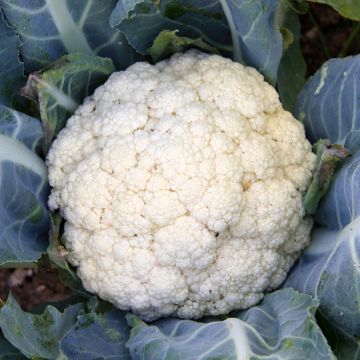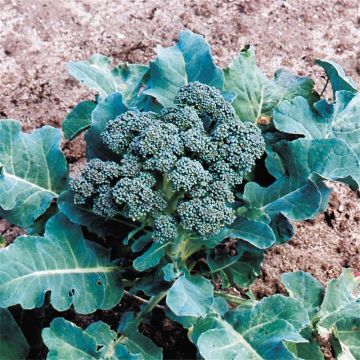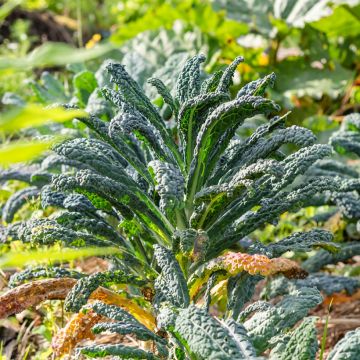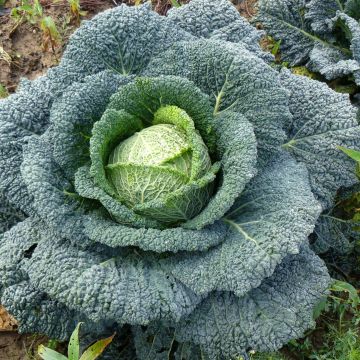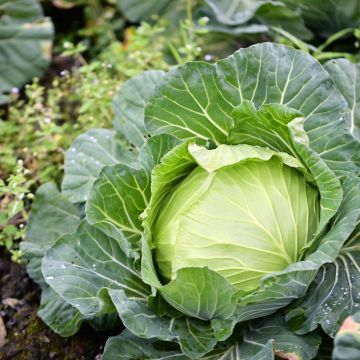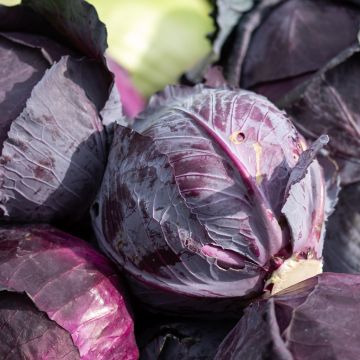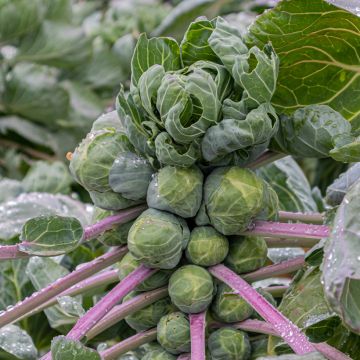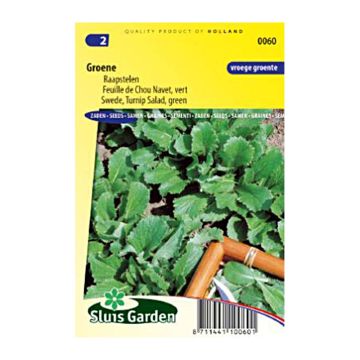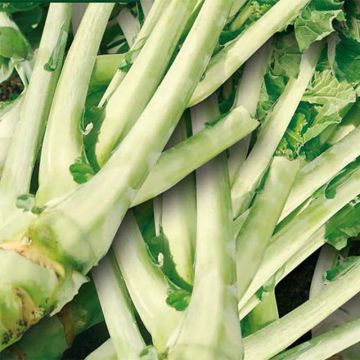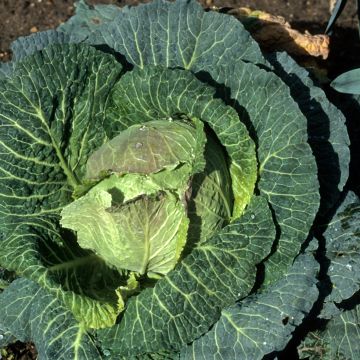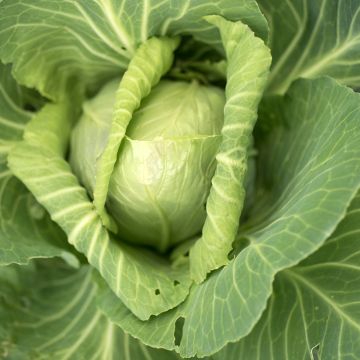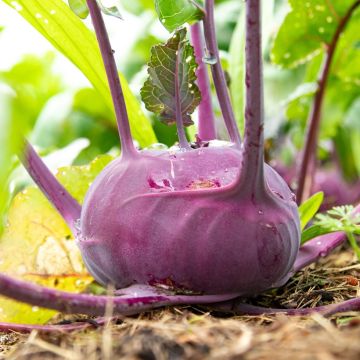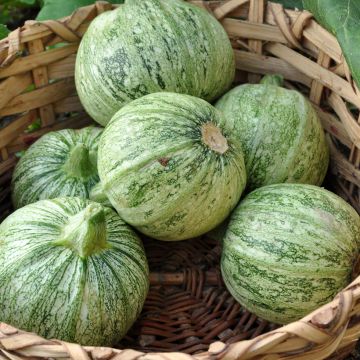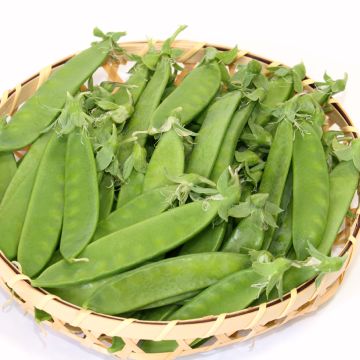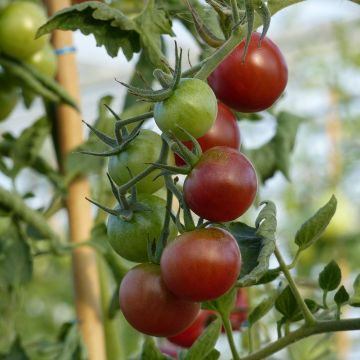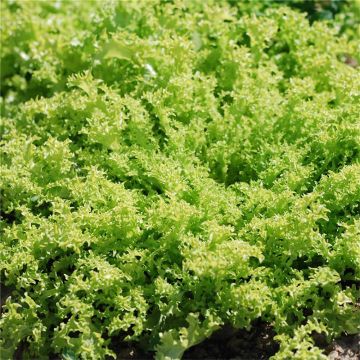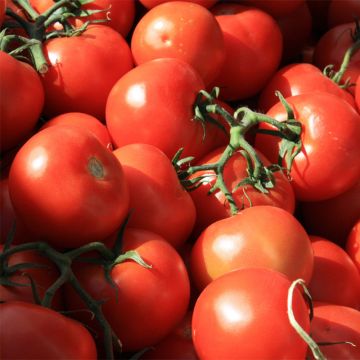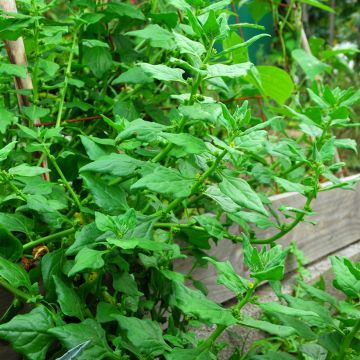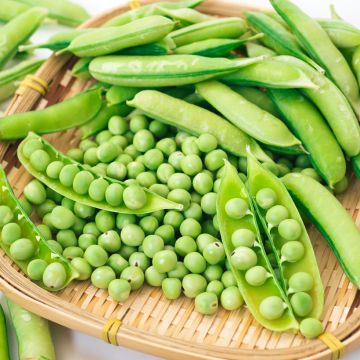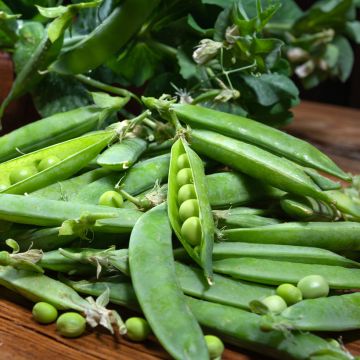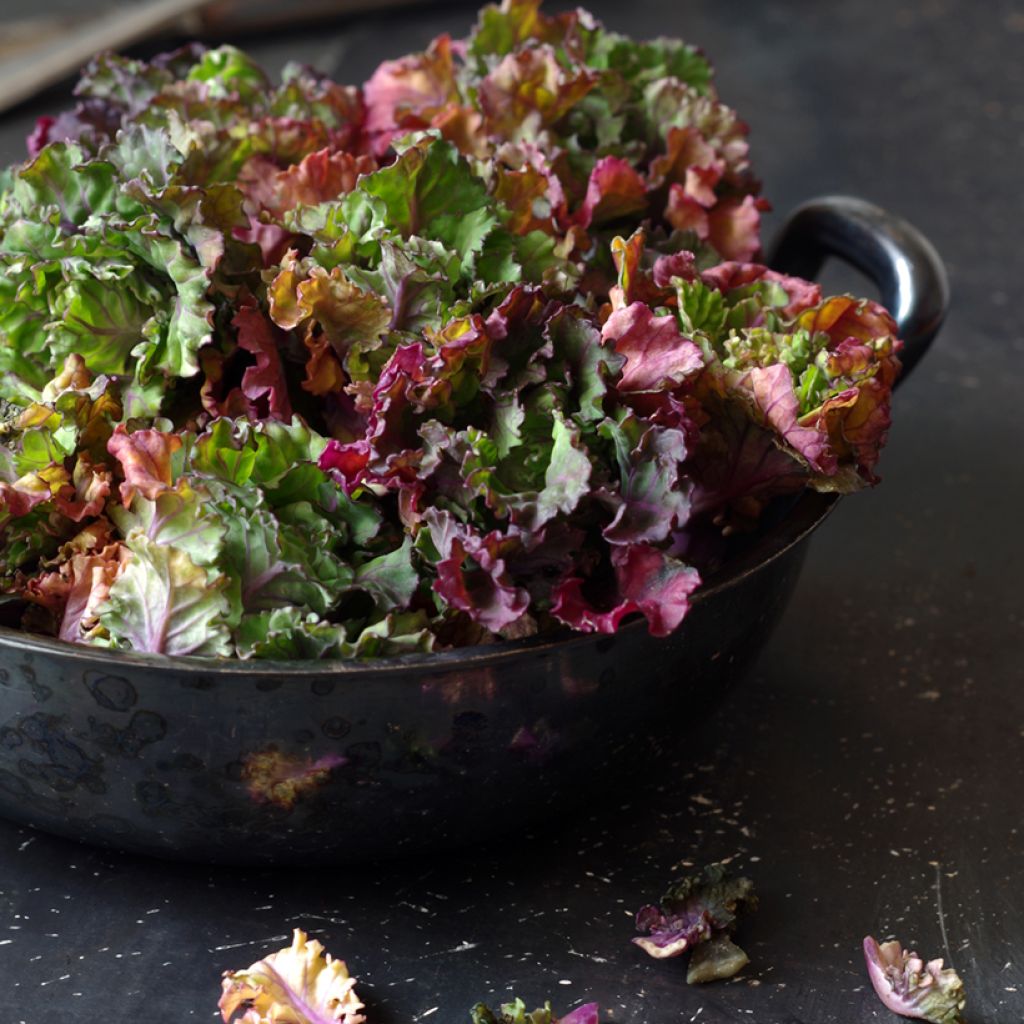

Brassica oleracea gemmifera seeds - Kalettes Garden Mix
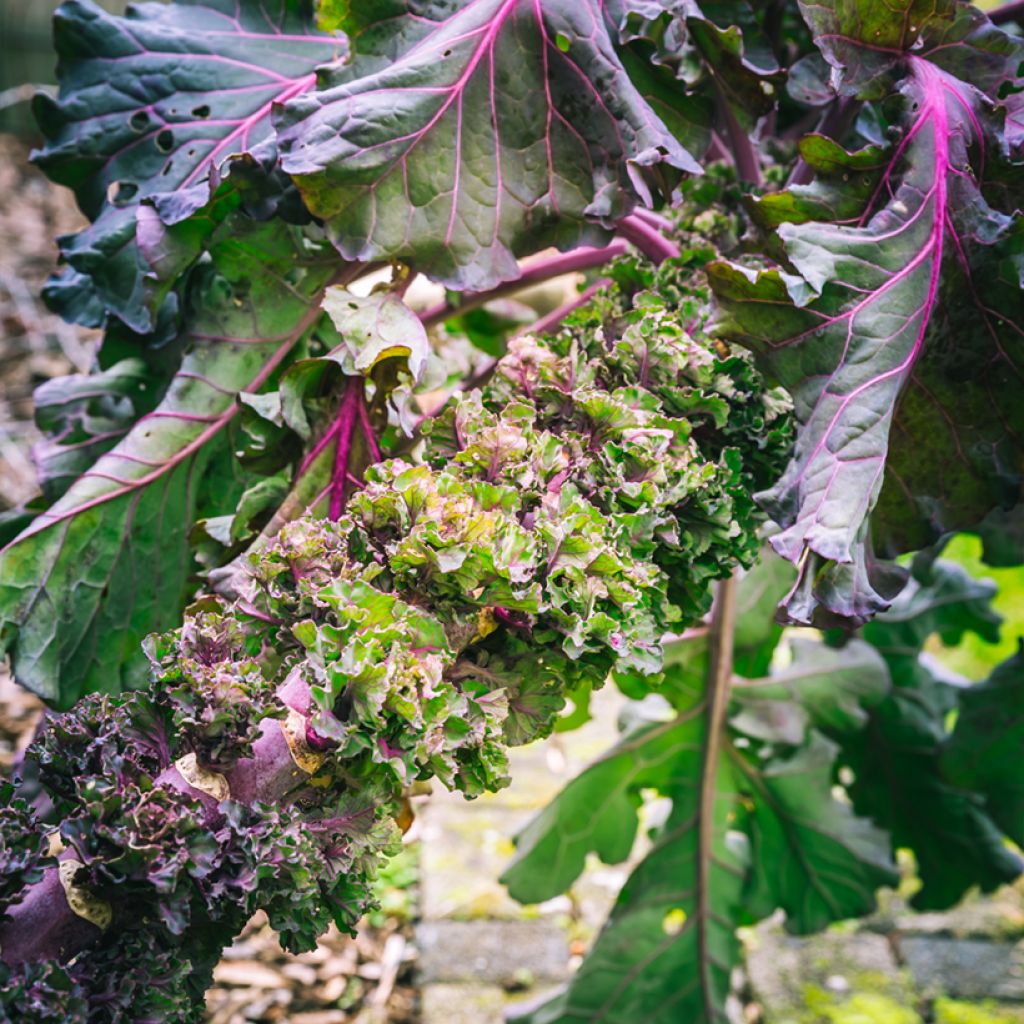

Brassica oleracea gemmifera seeds - Kalettes Garden Mix
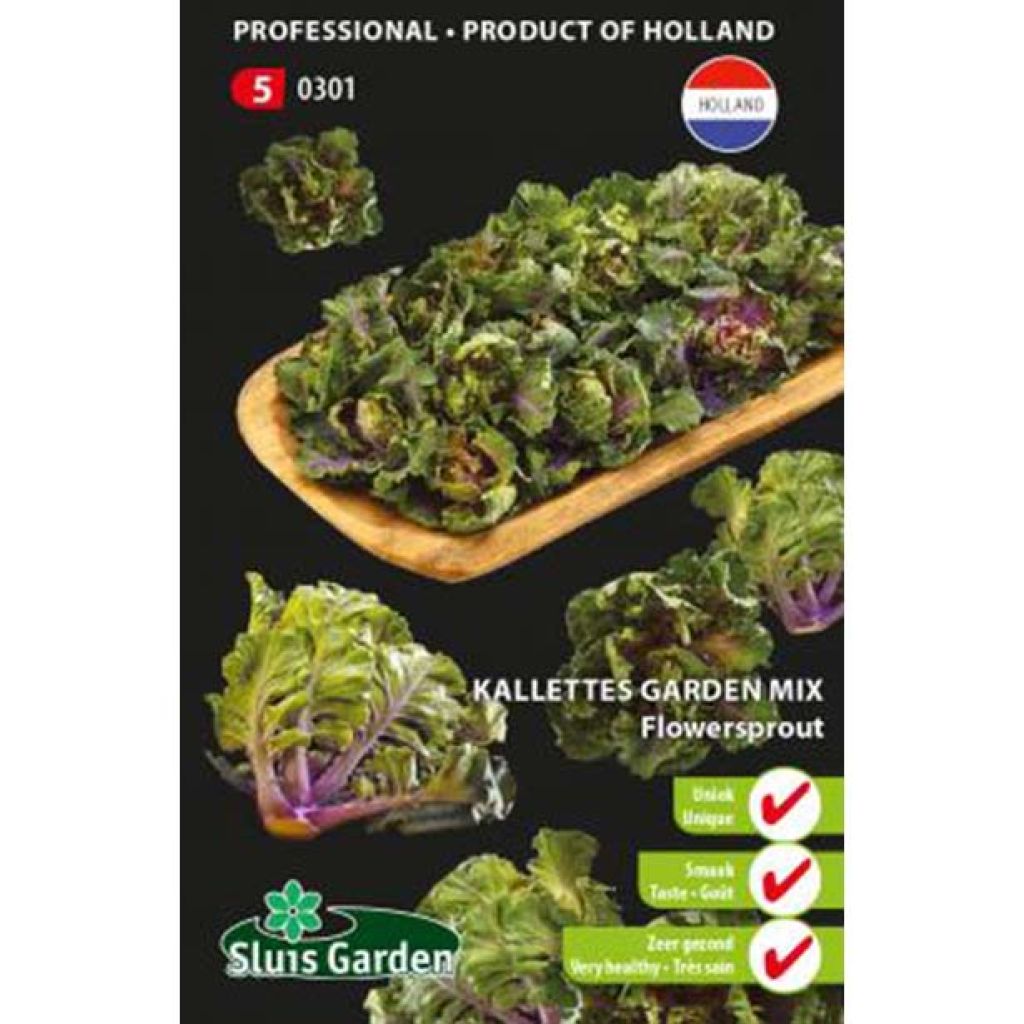

Brassica oleracea gemmifera seeds - Kalettes Garden Mix
View more pictures
Hide images
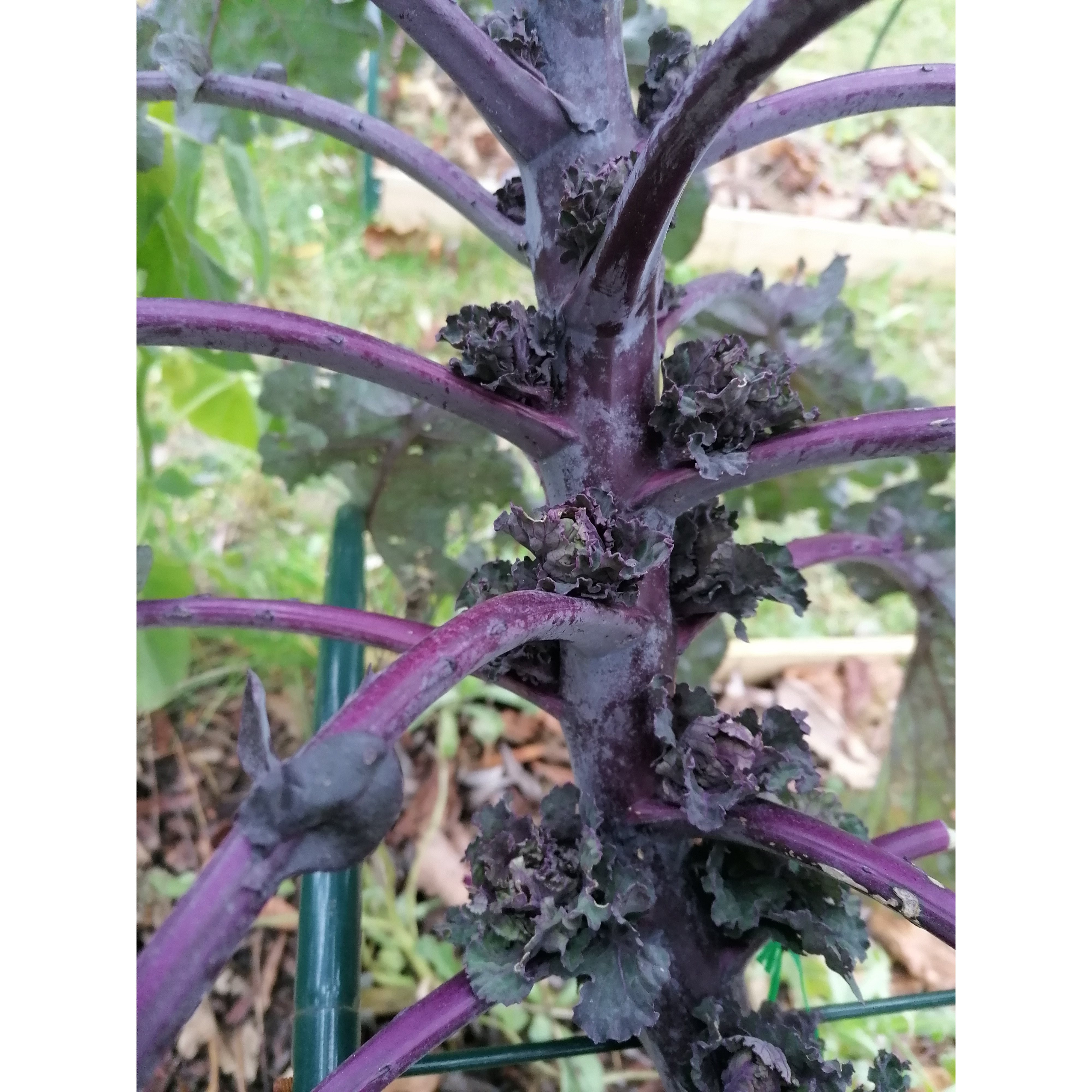
Barbara J.

December - kalettes
Barbara J. • 94 FR
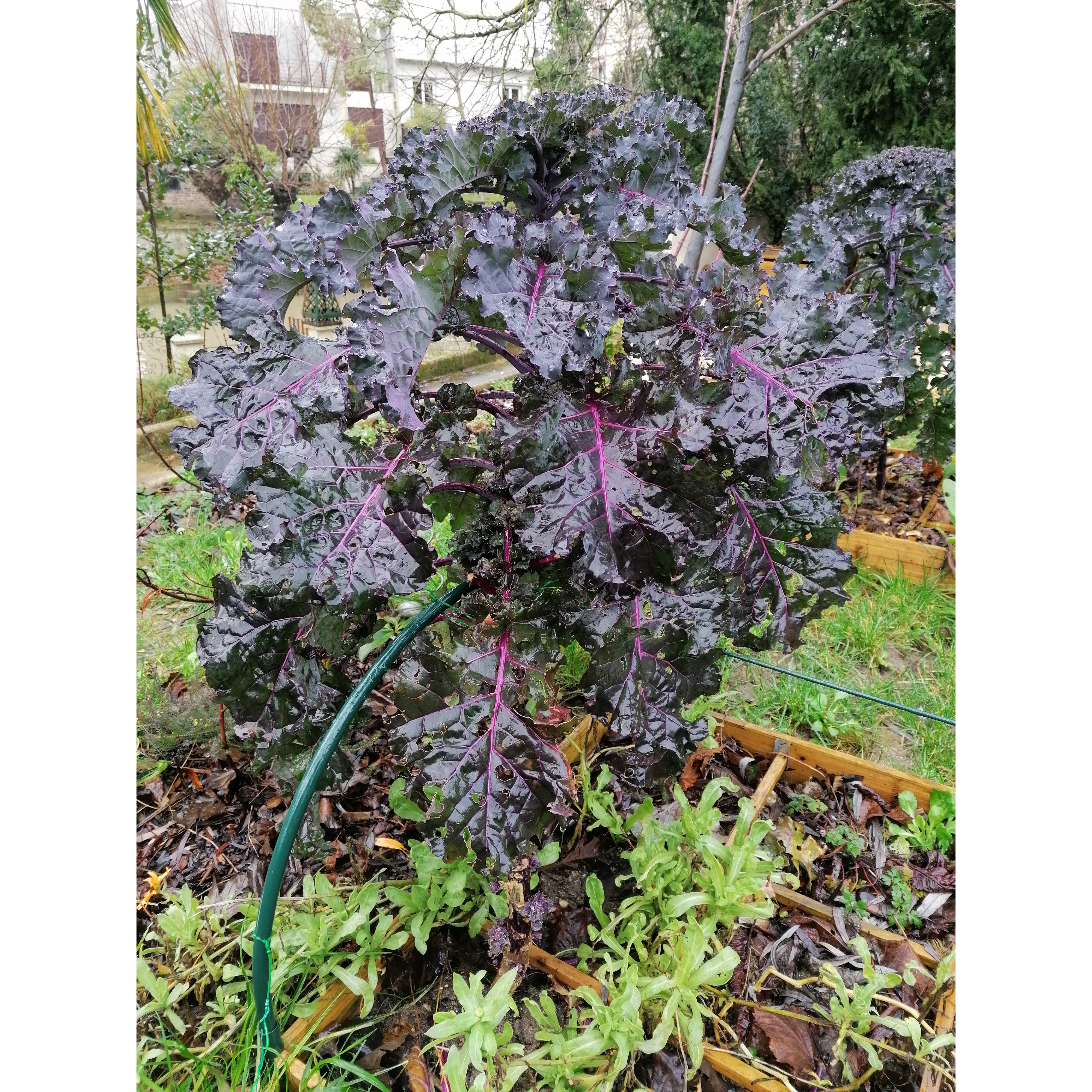
Barbara J.

No text to translate.
Barbara J. • 94 FR
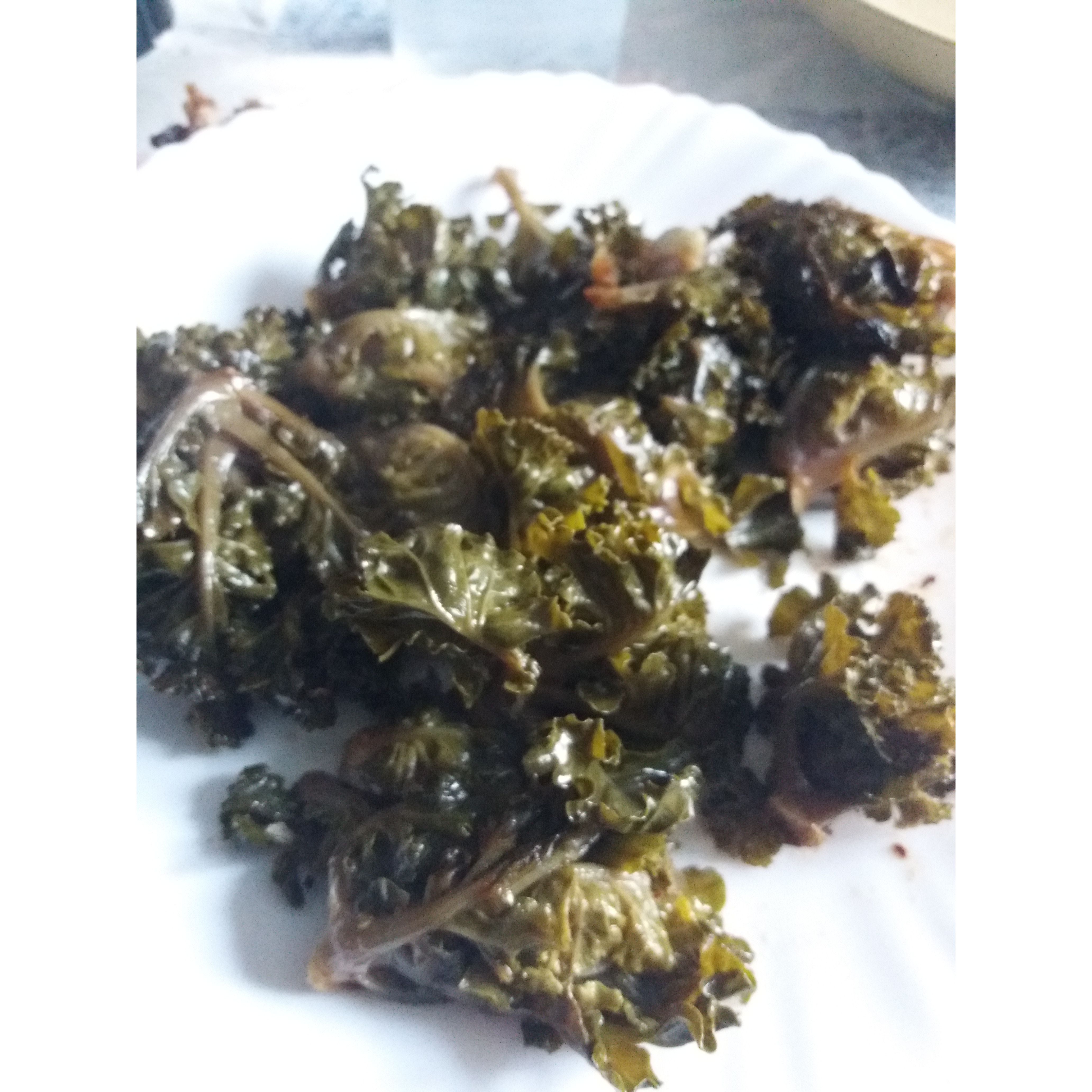
Annie D.

Steamed.
Annie D. • 51 FR
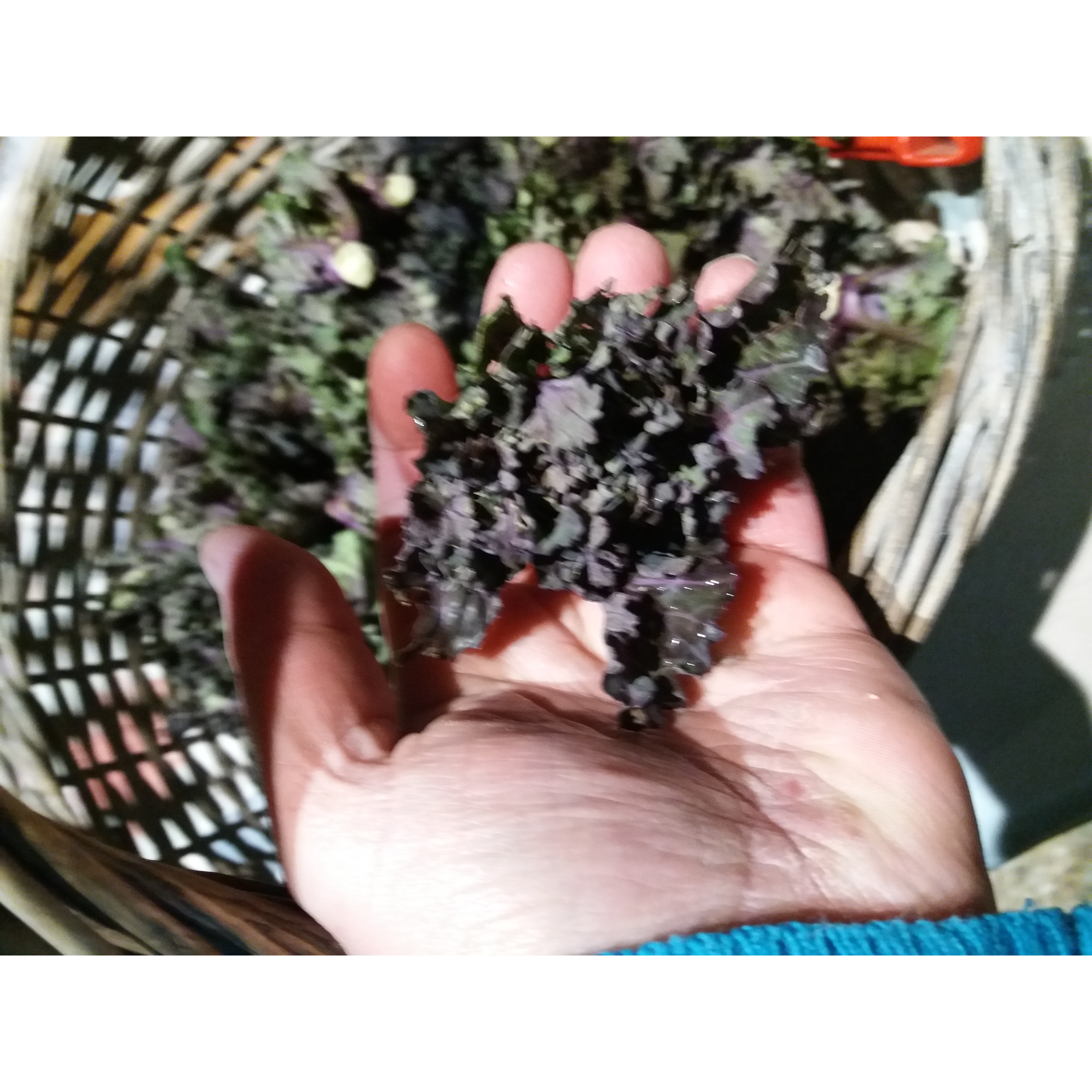
Annie D.

Harvest.
Annie D. • 51 FR
Brassica oleracea gemmifera seeds - Kalettes Garden Mix
Brassica Flower Sprout - Kalettes Garden Mix®
Cabbage, Mustard, Kale, Broccoli, Cauliflower, Brussels Sprouts.
Really disappointed because there were only 6 viable seeds in the packet. The rest was just dust, so impossible to sow. Such a shame because it's a brilliant vegetable.
laurence, 13/04/2023
Special offer!
Receive a €20 voucher for any order over €90 (excluding delivery costs, credit notes, and plastic-free options)!
1- Add your favorite plants to your cart.
2- Once you have reached €90, confirm your order (you can even choose the delivery date!).
3- As soon as your order is shipped, you will receive an email containing your voucher code, valid for 3 months (90 days).
Your voucher is unique and can only be used once, for any order with a minimum value of €20, excluding delivery costs.
Can be combined with other current offers, non-divisible and non-refundable.
Why not try an alternative variety in stock?
View all →This plant carries a 6 months recovery warranty
More information
We guarantee the quality of our plants for a full growing cycle, and will replace at our expense any plant that fails to recover under normal climatic and planting conditions.
Description
The Flower Sprout or Kalettes Garden Mix® is a new original vegetable! It is a cross between Brussels sprouts and kale. It produces on its stems multiple small buttons of dark green and purple, very curly and toothed leaves. This hardy brassica resists frost very well, making it an excellent winter vegetable. Its flavour is sweet and slightly sugary, without bitterness, reminiscent of walnut flavour. It is sown from February to May for a harvest from September to March.
The Flower Sprout belongs, like all cabbages, to the large Brassicaceae family. These cabbages have the habit and tall stems like Brussels sprouts, but instead of bearing the typical small heads of Brussels sprouts, they bear very curly leaf buttons ranging in colour from very dark green to purple. They are resistant to cold and diseases.
These are biennial plants grown as annuals that are full of qualities, both tasty and nutritional. From a dietary point of view, they are remarkable: low in calories, they are rich in vitamins K, C, and B6. For the latter two, they contain twice as much as Brussels sprouts.
In the vegetable garden, the Flower Sprout shares the same requirements as other cabbages: deep soil, excellent manure, and regular moisture. It thrives in the sun.
Harvest: It is harvested like Brussels sprouts, according to needs.
Storage: It can be stored in the refrigerator for a few days and for several months in the freezer after being blanched for a few minutes in salted boiling water.
Gardener's tip: To limit watering, we recommend, when the plants are well developed, to mulch the soil with thin successive layers of grass clippings, ideally mixed with dead leaves. This protection, which helps the soil stay moist, also reduces weeding.
Report an error about the product description
Harvest
Plant habit
Foliage
Botanical data
Brassica
Flower Sprout - Kalettes Garden Mix®
Brassicaceae
Cabbage, Mustard, Kale, Broccoli, Cauliflower, Brussels Sprouts.
Cultivar or hybrid
Annual
Other Cabbage seeds A to Z
View all →Planting and care
Sowing:
The germination temperature for Kalettes is around 15°C (minimum 7°C - maximum 20°C) and takes between 10 and 14 days.
Sowing period: from February to May
Harvest period: from September to March
You can either directly sow the seeds in place or prepare seedlings that will later be planted in their final location in the garden.
Seedling preparation: Indoors or in a nursery in the garden for the rest of the year (according to the recommended sowing period), sow the seeds at a depth of 1 to 2 cm in good seed compost or fine soil. Lightly cover with compost and remember to keep the substrate moist but not waterlogged.
When the young plants appear strong enough to handle, transplant them into pots if necessary before planting them in the garden, when there is no longer any risk of frost. During planting, respect the recommended spacing for direct sowing.
Direct sowing: In properly conditioned and finely worked soil, make furrows about one or two centimetres deep, spaced 50 centimetres apart. Sow the seeds and cover them with a thin layer of fine soil. When the seedlings are well-developed, thin them out, leaving one plant every 50 centimetres.
Cultivation:
Kalettes grow in full sun. They are a nutrient-demanding vegetable that requires well-rotted, nitrogen-rich and potassium-rich soil. It is recommended to apply a generous amount of mature compost (about 3/4 kg per m2) in autumn, by lightly digging it into the soil to a depth of 5 cm, after properly loosening the soil as for any vegetable cultivation. It is not very tolerant of soil pH, which should be between 5.6 and 6.5. In acidic soil, it will be necessary to gradually raise the pH by adding calcium in the form of Dolomite or Lime.
Seedlings
Care
Intended location
-
, onOrder confirmed
Reply from on Promesse de fleurs
Similar products
Haven't found what you were looking for?
Hardiness is the lowest winter temperature a plant can endure without suffering serious damage or even dying. However, hardiness is affected by location (a sheltered area, such as a patio), protection (winter cover) and soil type (hardiness is improved by well-drained soil).

Photo Sharing Terms & Conditions
In order to encourage gardeners to interact and share their experiences, Promesse de fleurs offers various media enabling content to be uploaded onto its Site - in particular via the ‘Photo sharing’ module.
The User agrees to refrain from:
- Posting any content that is illegal, prejudicial, insulting, racist, inciteful to hatred, revisionist, contrary to public decency, that infringes on privacy or on the privacy rights of third parties, in particular the publicity rights of persons and goods, intellectual property rights, or the right to privacy.
- Submitting content on behalf of a third party;
- Impersonate the identity of a third party and/or publish any personal information about a third party;
In general, the User undertakes to refrain from any unethical behaviour.
All Content (in particular text, comments, files, images, photos, videos, creative works, etc.), which may be subject to property or intellectual property rights, image or other private rights, shall remain the property of the User, subject to the limited rights granted by the terms of the licence granted by Promesse de fleurs as stated below. Users are at liberty to publish or not to publish such Content on the Site, notably via the ‘Photo Sharing’ facility, and accept that this Content shall be made public and freely accessible, notably on the Internet.
Users further acknowledge, undertake to have ,and guarantee that they hold all necessary rights and permissions to publish such material on the Site, in particular with regard to the legislation in force pertaining to any privacy, property, intellectual property, image, or contractual rights, or rights of any other nature. By publishing such Content on the Site, Users acknowledge accepting full liability as publishers of the Content within the meaning of the law, and grant Promesse de fleurs, free of charge, an inclusive, worldwide licence for the said Content for the entire duration of its publication, including all reproduction, representation, up/downloading, displaying, performing, transmission, and storage rights.
Users also grant permission for their name to be linked to the Content and accept that this link may not always be made available.
By engaging in posting material, Users consent to their Content becoming automatically accessible on the Internet, in particular on other sites and/or blogs and/or web pages of the Promesse de fleurs site, including in particular social pages and the Promesse de fleurs catalogue.
Users may secure the removal of entrusted content free of charge by issuing a simple request via our contact form.
The flowering period indicated on our website applies to countries and regions located in USDA zone 8 (France, the United Kingdom, Ireland, the Netherlands, etc.)
It will vary according to where you live:
- In zones 9 to 10 (Italy, Spain, Greece, etc.), flowering will occur about 2 to 4 weeks earlier.
- In zones 6 to 7 (Germany, Poland, Slovenia, and lower mountainous regions), flowering will be delayed by 2 to 3 weeks.
- In zone 5 (Central Europe, Scandinavia), blooming will be delayed by 3 to 5 weeks.
In temperate climates, pruning of spring-flowering shrubs (forsythia, spireas, etc.) should be done just after flowering.
Pruning of summer-flowering shrubs (Indian Lilac, Perovskia, etc.) can be done in winter or spring.
In cold regions as well as with frost-sensitive plants, avoid pruning too early when severe frosts may still occur.
The planting period indicated on our website applies to countries and regions located in USDA zone 8 (France, United Kingdom, Ireland, Netherlands).
It will vary according to where you live:
- In Mediterranean zones (Marseille, Madrid, Milan, etc.), autumn and winter are the best planting periods.
- In continental zones (Strasbourg, Munich, Vienna, etc.), delay planting by 2 to 3 weeks in spring and bring it forward by 2 to 4 weeks in autumn.
- In mountainous regions (the Alps, Pyrenees, Carpathians, etc.), it is best to plant in late spring (May-June) or late summer (August-September).
The harvesting period indicated on our website applies to countries and regions in USDA zone 8 (France, England, Ireland, the Netherlands).
In colder areas (Scandinavia, Poland, Austria...) fruit and vegetable harvests are likely to be delayed by 3-4 weeks.
In warmer areas (Italy, Spain, Greece, etc.), harvesting will probably take place earlier, depending on weather conditions.
The sowing periods indicated on our website apply to countries and regions within USDA Zone 8 (France, UK, Ireland, Netherlands).
In colder areas (Scandinavia, Poland, Austria...), delay any outdoor sowing by 3-4 weeks, or sow under glass.
In warmer climes (Italy, Spain, Greece, etc.), bring outdoor sowing forward by a few weeks.






























